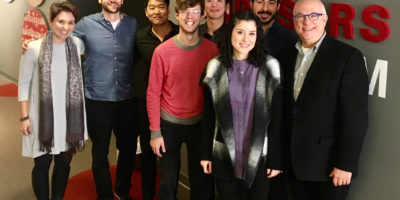
Good Advice is Extremely Hard to Find
My mentors have all provided me with invaluable words of wisdom, both practical and artistic. But they have never been a 26-year-old female composer trying to build a career in the United States in 2017.
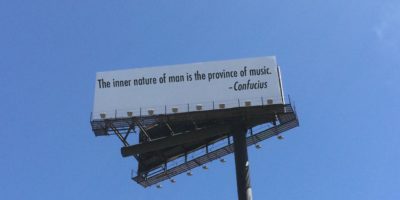
What Keeps Us Going?
Though I was relieved of the notion that I might earn my living making the music I make long ago, the idea still obviously dominates our culture, and as our own personal economic and social pressures grow over the years, it can be tough to stay focused on music and to continue composing.
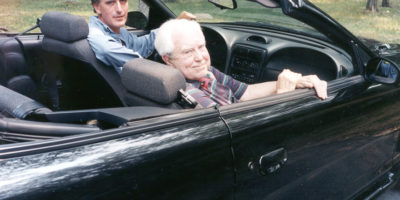
Carter’s Continuing Presence
Five years after Carter has left us as a human presence, it is time to assess his continuing musical presence in the still-young 21st century.

What Makes Music Matter?
What would happen if we gave ourselves to people instead of ideologies? What would happen if we measured our success not by the quantity of people who see us, but by the depth of the experience we have shared? Elliot Cole is back to push further on questions at the intersection of music, personal meaning, and professional success.
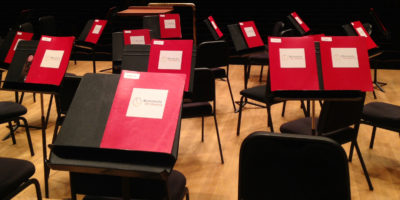
You Study, Practice, and Improve
Much of composing is just like any other skill or ability: you study, practice, and improve. Learning how instruments work and what is idiomatic is a long process that involves a lot of trial and error. Every rehearsal and performance experience compels me to reexamine what and how I write.
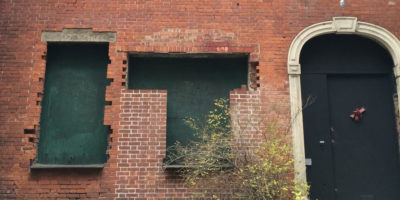
Going it Alone
Given where we are today, what options actually are there for a composer with a more independent, unaffiliated profile?
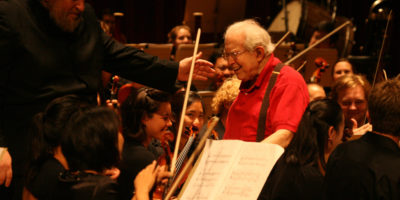
The Late Elliott Carter
Now that the fifth anniversary of Elliott Carter’s passing is upon us (he died on Nov 5, 2012), there’s been no push to rename the exit signs at Symphony Hall, but neither has there been universal canonization. The case of Elliott Carter stands apart from the usual pattern of posthumous appraisals, not least because Carter lived to within a few weeks of his 104th birthday, and kept composing almost to the end.
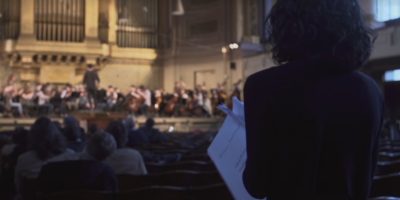
Composing and Revising Likely Pictures in Haphazard Sky
The process of writing and revising Likely Pictures in Haphazard Sky for orchestra has been transformative for my writing.
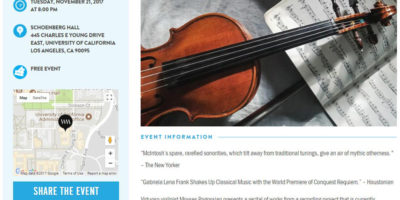
Announcing Event Pages
Showcasing the breadth of new music creation around the country in a way that promotes artists and develops audiences is the driving mission behind event pages.

What Does It Mean To Be A Mid-Career Composer?
Being a “mid-career” composer can be a somewhat confusing designation, but it has Dan Joseph asking some hard questions: If I just keep doing what I’ve been doing, will an actual career eventually develop? Do I keep plugging away with a defined style and identity in hopes of finding some form of conventional success, or do I keep exploring new ideas and interests without regard for being noticed or recognized?
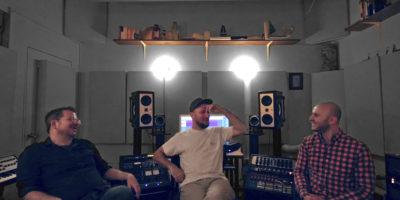
From the Machine: Conversations with Dan Tepfer, Kenneth Kirschner, Florent Ghys, and Jeff Snyder
They discuss their unique approaches to the compositional and performance possibilities offered by computers to generate, manipulate, process, and display musical data for acoustic ensembles. It’s potentially one of the most promising vistas for musical discovery in the coming years.
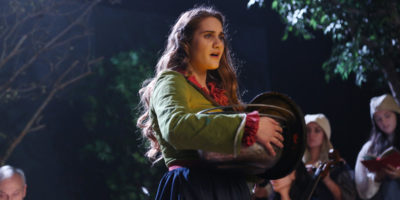
Vireo, My Tenacious Muse
“Vireo: The Spiritual Biography of a Witch’s Accuser” was more than two decades in the making. Here composer Lisa Bielawa recounts the evolution of this ambitious work from idea to visionary production.
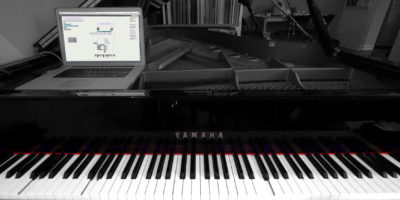
From the Machine: Realtime Algorithmic Approaches to Harmony, Orchestration, and More
This week, Joseph Branciforte shares some algorithmic techniques that he’s been developing in an attempt to grapple with some of the compositional possibilities offered by realtime notation. However, he also stresses that there are inevitably situations where theoretical purity must give way to expediency if one wishes to remain a composer rather than a full-time software developer.

Delays, Feedback, and Filters: A Trifecta
Interaural time difference, interaural level difference, and head shadow are useful not only for an audio engineer, but are also important for us when considering the effects and uses of delay in electroacoustic musical contexts.
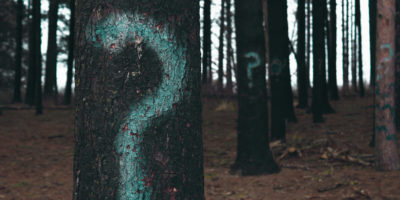
Questions I Ask Myself
At the last New Music Gathering, Elliot Cole shared a list of questions that he’s been wrestling with—questions about culture and career choices, about what his music can offer others as well as how it shapes his own life. They are tough questions, but he also found them helpful and clarifying. Others agreed and asked him to share them more widely, which he has generously done here.
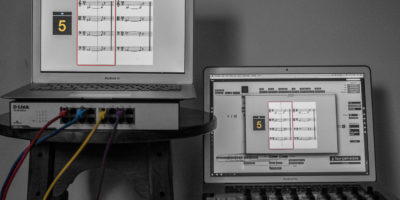
From the Machine: Realtime Networked Notation
The possibility of instantiating realtime compositional intelligence in machines holds the most radically transformative promise for a paradigmatic shift in music in the years ahead.

Delays as Music
The use of delays in music is ubiquitous. We use delays to locate a sound’s origin, create a sense of size/space, to mark musical time, create rhythm, and delineate form.
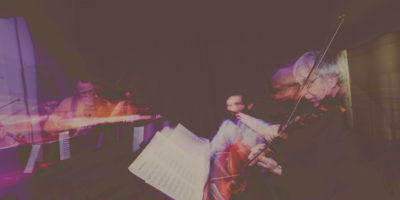
Progressive Chamber Music
The aesthetic of the Sirius Quartet and our Progressive Chamber Music Festival is an expression of the ongoing blending resulting from the gradual breakdown of the barriers between contemporary academic music and popular and folk music traditions. We don’t rule anything out in the music we write: tonality, atonality, groove, form, etc., and we like to incorporate improvisation in various ways to achieve various goals in our music.
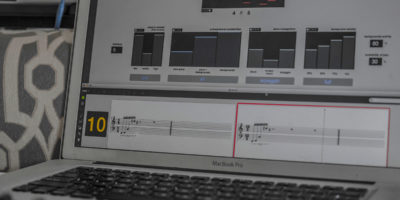
From the Machine: Computer Algorithms and Acoustic Music
Western music has made use of rule-based compositional techniques for centuries, but with the advent of realtime computing and modern networking technologies, new possibilities can be imagined. A composer’s live data input can work in concert with conditional, aleatoric, probabilistic, and pre-composed materials to produce what might be called a “realtime composition” or an “interactive score” for acoustic musicians in live performance.
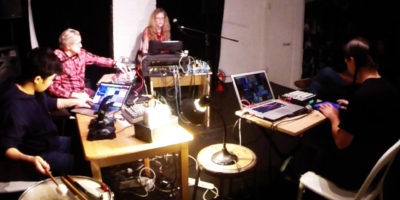
Live Sound Processing and Improvisation
Over the past 5-7 years there has been an enormous surge in interest among musicians, outside of computer music academia, in discovering how to enhance their work with electronics and, in particular, how to use electronics and live sound processing as a performable “real” instrument.

Stefania de Kenessey: 20 Years After Rewriting History
In 1997, composer Stefania de Kenessey launched the Derriere Guard movement to promote a “return to long-forgotten, long-abandoned ideas rooted in history and tradition” but now, 20 years later, she believes that the current range of accepted aesthetics has rendered the Derriere Guard no longer necessary.

Building Audiences for Post-Genre Artists
Not only does genre-based language mislead listeners about post-genre music, but it also affects how the music itself is monetized and thus how artists make their living and find their audiences. Hannah Schiller concludes her three-part series with a discussion of roadblocks and possible paths forward.

The Role of Listeners in a Post-Genre Context
If a composer has no intent of writing within the “classical” genre label, then attempting to understand the piece through a classical lens is irrelevant. But what about the listener? There is no doubt that all listeners have pre-existing connotations surrounding certain types of sounds.

Notes from the Custerdome: A Jazz Appreciation of Steely Dan
Steely Dan proved that pop music could be harmonically complex and quirky in the early to mid-’70s, when the then-new FM format allowed for longer cuts, and more expansive playlists, genre-wise. But the source of their signature sound was their incorporation of the jazz aesthetic in every aspect of their already broad musical conception.

